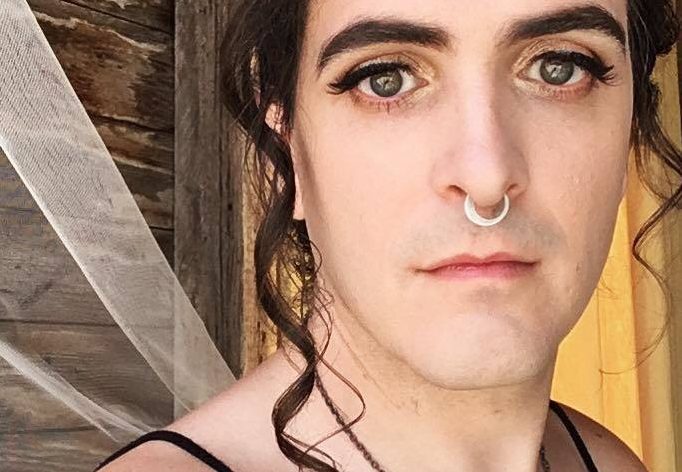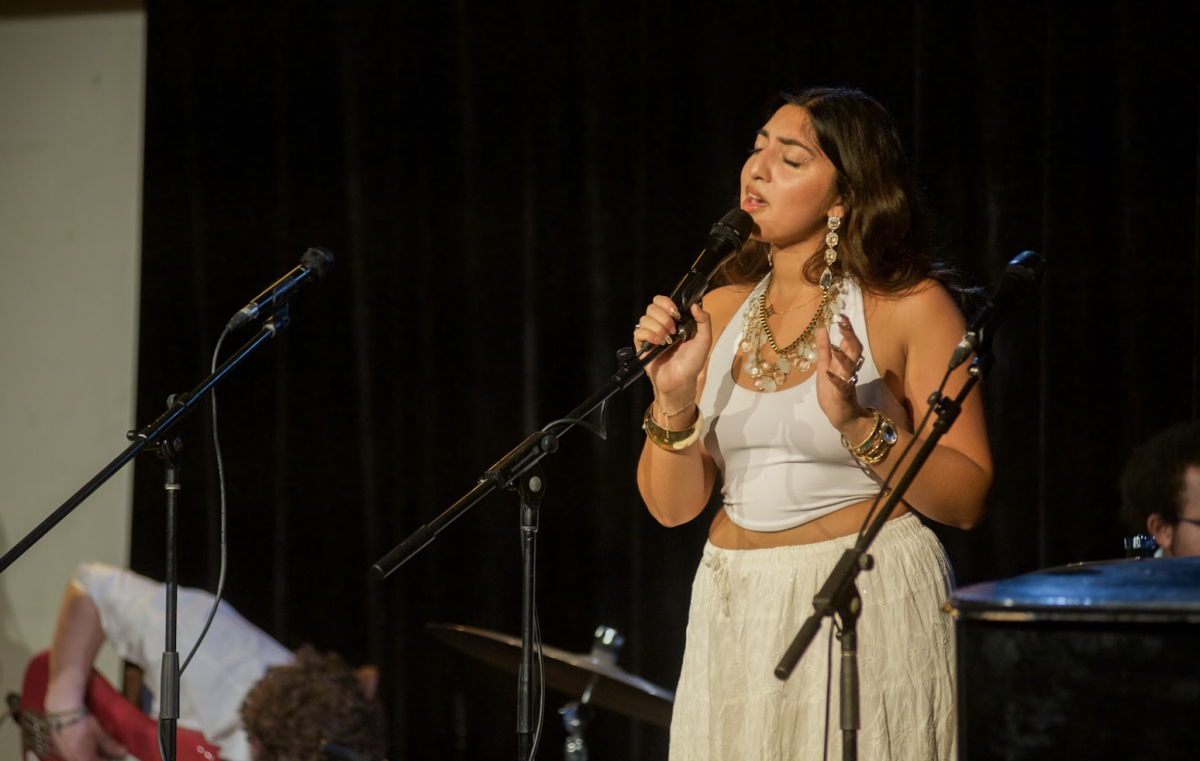Margaret Killjoy is an author, musician, activist, and anarchist. She is best known for her speculative fiction, particularly the Danielle Cain series, which began 25 years ago as a series of zines. Killjoy will release the third book in the series, The Immortal Choir Holds Every Voice, this year. Killjoy’s politics permeate her oeuvre, which spans fictional novellas of traveling punks to Substack memoirist essays. On May 1, Killjoy will visit Oberlin College, where she will lead a workshop on community preparedness and a reading of her new novella.
This interview has been edited for length and clarity
What can we expect from your upcoming release?
The book, The Immortal Choir Holds Every Voice, is the third book in the Danielle Cain series, and it’s composed of three vignettes, or short stories, set within the same world. The Danielle Cain series is about punk rock paranormal investigators, so punk rock Scooby-Doo. This particular book is a reflection on death. It is people telling stories about their friends whom they have lost in the past. There are murderous elves and trolls living in Oregon, and cops are one of the big, scary things in the story.
What made you return to this universe and character for a third time with this book?
I’ve been writing Danielle Cain, even before she had that name, for about 25 years now. It started off as a way for me to write about my experiences as a traveling activist, squatter, and anarchist without telling my friends’ stories for them, and so it became a way to write a fictionalized memoir. As I transitioned, so did the protagonist. I only started publishing them — other than in zine form — about 10 years ago. It was originally a duology put out by Tordotcom Publishing, and I always knew I wanted to return to this world, because Danielle Cain is probably the closest I’ve written to a self-insert character. I like being able to show a culture and subculture that I find beautiful, that I participate in, and that is not shown very much in mainstream media — traveling punks and activists and such.
What can we expect from your visit to Oberlin?
I’m planning two events at Oberlin, one of which is a preparedness event. It will be about storing food and how to reconcile the individualistic idea of preparedness with a more community-minded framework. And how those two can work together by us being prepared for supply chain disruptions and natural disasters and, oh, I don’t know, the rise of fascism. So that’s one of the main things that I’ll be talking about while leading a workshop on storing and preparing food for long-term storage. The other thing that I’ll probably end up talking about when I do the reading is the role of fiction and story in social change. I’m also an open book about my own direct action activist experience of protests and tree sitting, all that kind of stuff.
Can you share your thoughts on the role of fiction in social change?
I think that politics follows culture. Politics is the sharper tool. It changes things more dramatically, and it creates structures very often. But I think that culture is one of the most important battlefronts that we have as people who desire a substantially better world. I think that for my generation, Fraggle Rock was one of the most important pieces of radical culture, without it ever being labeled in that way at all. But Fraggle Rock shows a culture of people who don’t use money, who worship a compost heap, who love and take care of each other, who present gifts, who subvert hierarchy, who convince a prince to not become a king. These cultural lessons, reading Fraggle Rock, help us, especially when we’re younger. They don’t tell us what to do, but instead, they help provide ideas of who we can become. I think that our role models are often people in our real lives, but they’re equally or more often characters and stories.
Humanity has been doing this for as long as it’s existed — creating stories in order to get ideas across. I think that very often, the left — in the broadest sense — is actually very good at the slow work of cultural change. Unfortunately, I do think that there is a problem where this can easily and quickly be undone by the violent actions of the right wing.
What do you think the role of history is in this conversation?
There’s a reason that so many stories we read are around revolutionary movements and people defending marginalized people. Sometimes, they can be thought experiments about how to end a corrupt authoritarian government. Let’s play it out in fiction, where it feels safe and is easier to sell people on. If you say Donald Trump is bad and needs to be deposed, people who like Trump will simply disagree, right? But if you say the global emperor of a fictional land needs to be deposed, people could more easily be like, “Yeah, totally.”
At the same time, I don’t ever want to tell someone what to do. That’s one of the advantages of fiction; it doesn’t really provide answers, it helps people ask questions. But in terms of a reader thinking, “I would be someone who would go fight that emperor” — if you read history, you might think that people were just made of sterner stuff back then. You’re like, “Oh, wow. These artists got together and burned Nazi storehouses. They’re just super cool heroes, right?” Whereas, when you read it in fiction, you get to explore their minds, and you can understand that they were terrified. Ironically, when we make fictional characters, it’s easier to humanize them.











